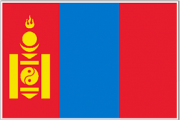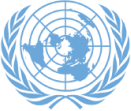Mr. President,
Mr. Secretary-General,
Excellencies,
Ladies and Gentlemen,
It gives me a distinct pleasure to address this august body today on the role of sport and the Olympic ideal in promoting peace and development.
By its very nature, sport is about participation. It is about inclusion. And it is about equality. It stands for human values such as respect for the opponent, acceptance of binding rules, teamwork and fairness – principles that are also embedded in the Charter of the United Nations.
Sport has the potential to contribute to overcoming conflicts both within and among States. It promotes rapprochement, bridging social, economic and cultural divides and building a sense of shared identity.
Hence, it is important to use sport as a tool to promote peace, dialogue and reconciliation in the areas of conflict and disturbance during and beyond the period of international sporting events.
Towards this end we are adopting today the draft resolution sponsored by Brazil – host of the XXXI Olympic Games and of the XV Paralymic Games to be held next year.
Mr. President,
We commend the work done by the United Nations Office on Sport for Development and Peace and other relevant agencies in implementing the Olympic Truce and the Action Plan on Sport.
The world leaders recognized sport as an important enabler of sustainable development as envisaged in the 2030 Agenda for Sustainable Development adopted at the historic Summit last month.
Mr. President,
Mongolia welcomes the decision of the General Assembly to designate 6 April as the International Day of Sport for Development and Peace.
Sport is deeply rooted in the traditional way of life of Mongols. Wrestling, horseracing, and archery are the three age-old competitions traditionally used to measure the courage and strength of nomads.
Hence, sport development has been high on the agenda of the Government of Mongolia.
Since 2011 we have been implementing a “Comprehensive national program to promote sports”.
The program aims at promoting public sports and education to instill a healthy lifestyle and increase longevity of the population, supporting sportsmen and athletes, building sport and fitness centers for general public, especially youth, children and people with disabilities, and encouraging public-private partnerships in sport development.
It also envisages, inter alia, strengthening of the national capacity and skills of athletes to display high performance in world tournaments, expanding types of sport of our participation in Olympic Games and other international championships.
Mr. President,
Sport brings about new opportunities for individuals, communities and for States. It expands global commitments in strengthening physical, mental and emotional health, social welfare and cohesion, promoting team spirit and solidarity, adherence to standards and rules of the game, and in raising awareness and understanding of human rights.
Sport is important in promoting human rights worldwide through the interactions it generates between people from different backgrounds and cultures.
Through its universal nature, sport can instill in people the values of respect, diversity, tolerance and fairness, thus serve as a tool to combat all forms of discrimination.
As a candidate country to the Human Rights Council at the upcoming elections, Mongolia stands strongly committed to the promotion of human rights, including through sport.
Sport has a unique power to convene, mobilize and inspire. Therefore, let us all use sport to help create a healthier, happier and more prosperous world, a world where no one is left behind.
I thank you for your kind attention.


